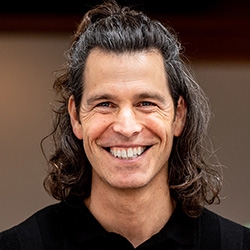

NVC Resources on Dialogue
-
Trainer Tip: One of the swiftest ways to close our hearts is having judgmental thinking or looking to get our way. How open are you when you're in this mode? The goal in peaceful living is to approach our relationships with an open heart. Start conversations today with an intention to connect with other people.
-
Trainer Tip: In our effort to be heard, we often forget to listen. In fact, your need to be heard will not be met completely until you have heard how what you said affects the other person. If we want to ensure that we're heard we can ask the other person to reflect what they heard us say. And we can hear what's going on with them. It is important to remember that a dialogue is not complete until both people have been heard.
-
Discover seven key conversations that help intimate relationships thrive.
-
Children often ask adults “Can I…?” This question is so common that we carry it with us into adulthood, often addressing each other in the same way -- and more so with those we see as authority figures. However, let's unpack how this phrasing can reaffirm power differences. And see how, instead, we can transform paradigms of power in a way that invites dialogue, and co-creates an outcome that we can mutually benefit from.
-
Yoram Mosenzon discusses judgmental dialogue and its hidden aim to meet needs. This often creates distance instead of fostering connection. Yoram introduces a self-connection exercise to improve the chances of dialogue becoming more enriching and life-serving.
-
Duke Duchscherer shares that Restorative Circles have the ability to transform relationships. Groups may start with feelings of worry, anxiety, fear, anger, and even hatred. The dialogue process supports a shift to more ease, connection, and trust.
-
In life, relationships, and organizations, authenticity is the bedrock of effectiveness. It can give rise to effective dialogues, information flow, intimacy, accountability, decision making and follow through. NVC can give us more tools to live with rigor around our authenticity...
-
Interactive dialogue addresses common questions for new NVC facilitators and trainers.
-
Ask the Trainer: Share a list of request types, examples, and a strategy for formulating them.
-
Ask the Trainer: Exploring how unconscious motivations influence the needs we identify and express.

Quick Links
Subscription Preferences
Stay In Touch!
Looking for ways to keep up with NVC Academy news, get special offers, free resources, or words of inspiration? Here are five ways to stay engaged:









